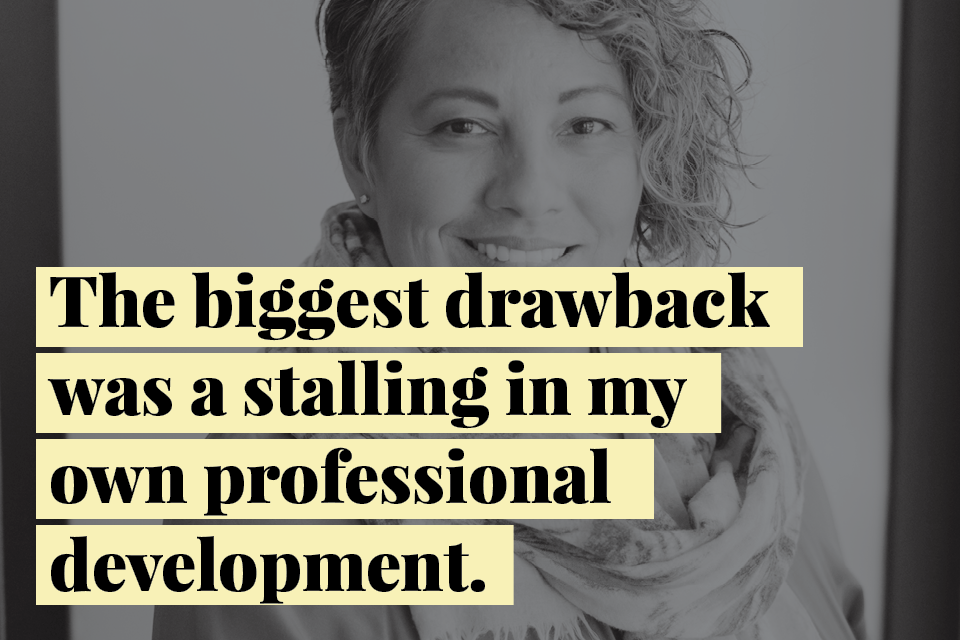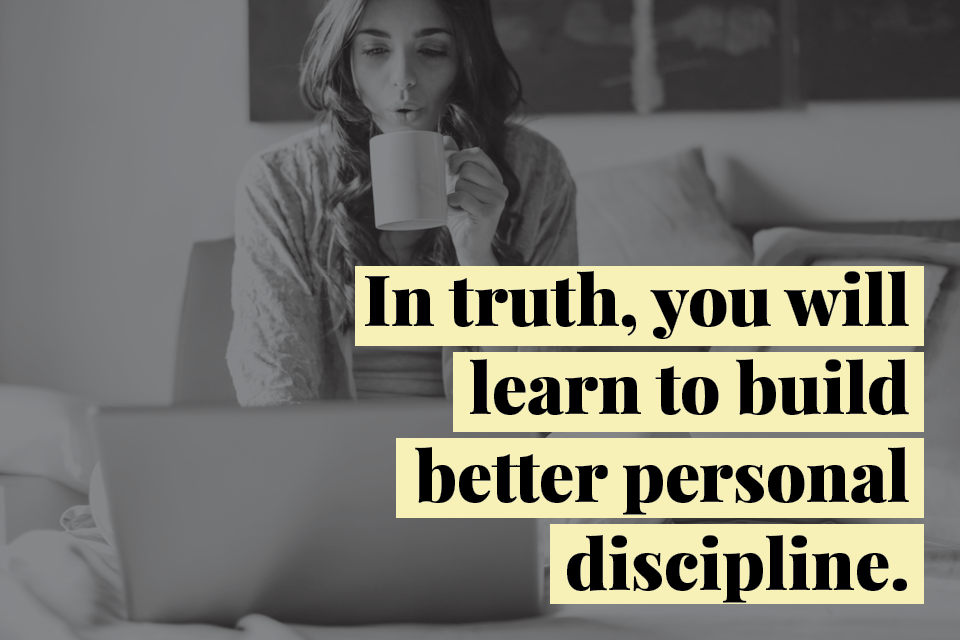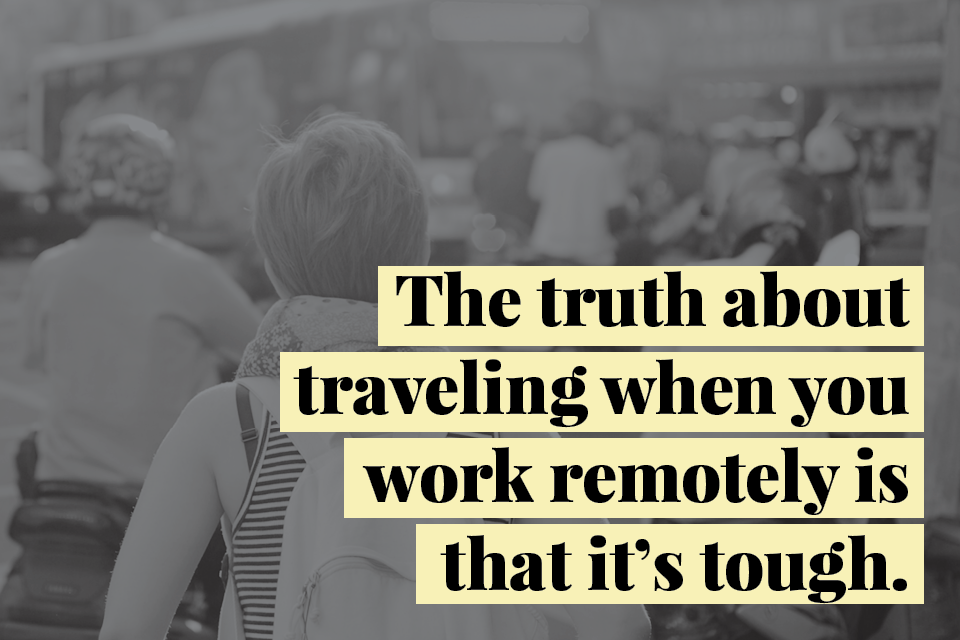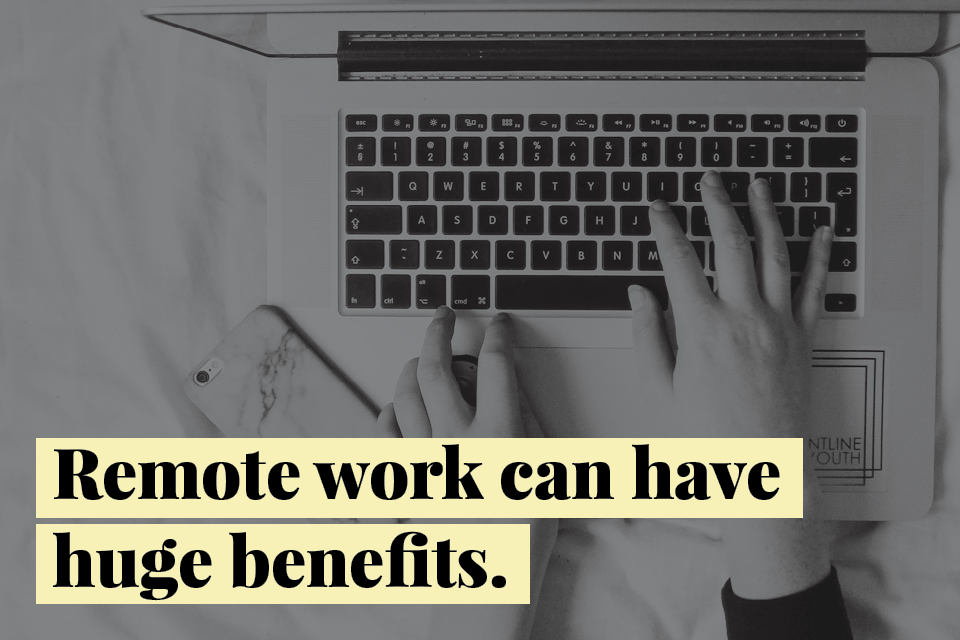Remote work is the future, right? Well, not for me.
Sure, remote work is a lifesaver for working moms, employees who are caring for loved ones, or for people who thrive in heads-down work all day long. As someone who lives in Los Angeles, enduring a daily commute can shave years off your life. When you read reports that
82 percent of telecommuters report lower stress levels, it really hits home.
Working remotely does have huge benefits. It can improve your health, your monthly transportation bills, and your happiness at work. However, there are some drawbacks. I will, no doubt, read this article in five or ten years and say, “Caileen, you fool!” but for now—right at this moment—remote work is not the best option for me. Let me tell you why.
Face-to-Face Interaction
When my previous company went remote, I was not too happy. I had just gone through a horrifying breakup and I simply needed human interaction. It’s not that my coworkers were my best friends in the entire world, but they were people—people with whom I spoke, ate lunch next to, and communicated with on a daily basis.
So, when I found out my company was
going remote, I was a little horrified. To me, face-to-face interaction is an integral part of work life. My bosses did take great care to set up weekly Google Hangouts, but was that enough?
For me, not so much. While it worked for a long enough time, it soon became old. Even
as an introvert (maybe especially so), human interaction—daily human interaction—is crucial for me. Without it, I slowly became disengaged in the work. It’s difficult to replicate the excitement, camaraderie, and the hustle when you’re in the “office” section of your studio apartment.
Career Development
I was about a year into remote work when I really felt like I hit a wall. I didn’t hate remote work the entire time. There were huge perks to working remotely. Since I started earlier in the morning (sans commute) I was able to get a ton of extremely focused work done before I ever would have been to work in a normal office. I even
wrote an article about how much I loved working remotely.
The biggest reason that
remote work didn’t work for me was (and is) my desire to work in a live, moving environment. When my position and my entire company went remote, I had a cushy job title—but if I am being honest, I didn’t have the skill set I wanted to have
for myself.Online learning is amazing—you can learn entirely new skill sets through online courses, in-depth articles, and by following experts in your own field. However, there are things you will not learn from anything else other than hands-on experience. Sure, I can watch one thousand videos on how to tie my shoes on
YouTube, but I will never know how to do it unless I tie my own shoes.
This is something that began to weigh heavily on me. I thought, the longer I stay here, the more opportunity I am missing out on. I wanted to be face-to-face with clients, to work through problems in real-time, and to experience day-to-day life that simply wasn’t happening in my apartment.
The biggest drawback was a stalling in
my own professional development. A huge part of building your career is paying attention to the gaps in your own skill sets—and filling them in. It became increasingly apparent that, in order to truly earn a director title, I needed to be directing IRL.
Personal Discipline While Working Remotely
This is a reason many people cite for not being able to work remotely. In truth, you will learn to build better personal discipline. Depending on your company’s remote policies, you may even be able to make your own hours. This allows any employee to work at her
peak productivity—during her most productive times. We aren’t all robots—as such, we are not all wired to be at our highest efficiency between the hours of 9 am and 5 pm.
In this way, remote work can be excellent. You can ride your own productivity waves—whenever they arrive.
If you have real doubts about building any sort of personal discipline, remote work probably isn’t for you. Sure, it’s great for activities like writing or pulling data—where you need dedicated time and limited distractions, but it can be detrimental when you are working on a project with a team—which brings me to my next point.
Heads-Down Versus Heads-Together
Heads-down work is crucial—in any position. For heads-down tasks, remote work is optimal. There are no distractions—nobody is coming to ask you a quick question. You can set your away message on Slack and toil away at your head-down work.
Unless you are working heavily in data analytics or complicated coding projects, not all of your work is heads-down work. For work that needs to be completed by a
team working together collaboratively, remote work is not the greatest. This is what I like to call heads-together work. This is the kind of work that no FaceTime, no Hangout, and no video call can replicate. Believe me, I have tried. It may sound cheesy, but there is no way to fully replicate an in-person brainstorm meeting.
For example, when we hold our editorial planning meetings here at CC, we get together in a room with colored markers and a whiteboard—and we go off. As we fill the weeks with content that excites and motivates us, the energy really builds. This heads-together work is crucial to the mission of your company. I am trying really hard not to use the word synergy here, but you get the gist, right? Heads-together work, to me, is invaluable.
Traveling Remotely Isn’t That Great
“But you can travel wherever you want—and work from anywhere!”
Ok, sure. The truth about traveling when you work remotely is that it’s tough. First of all, before you go anywhere, you are going to have to make sure you have reliable internet. In working remotely, you learn quickly that your local coffee shop probably doesn’t have wifi strong enough for your Google Hangouts. That coffee shop in Miami? You won’t know about those wifi issues until you’re there—literally sweating because you can’t join the marketing meeting you’re supposed to be running.
The second problem with traveling remotely is other people. I love you family, friends, and loved ones—but you all made working remotely while traveling a real struggle. In my experience, those who haven't worked remotely won't (or can't) take it seriously. As a result, when you’re traveling with others, they are constantly trying to pull you away from work. Okay, maybe it’s my fault—I can tend to be a people pleaser, so this was a huge point of stress for me.
Traveling, especially for any type of enjoyment, is not that great when you’re working remotely. Seriously. You will likely miss out on happy hours, kiteboarding, midday pool lounges, Aperol spritzes, and countless other events.
Is Semi-Remote the Future?
Here’s the part where I contradict everything I have said so far.
Remote work can have
huge benefits—and I think it’s part of the future. Companies that allow a remote Friday or that are open to semi-flexible schedules are going to see huge increases in employee efficiency and satisfaction.
For me, for now, completely remote work is not a large part of my immediate future, but maybe it is for you.




















